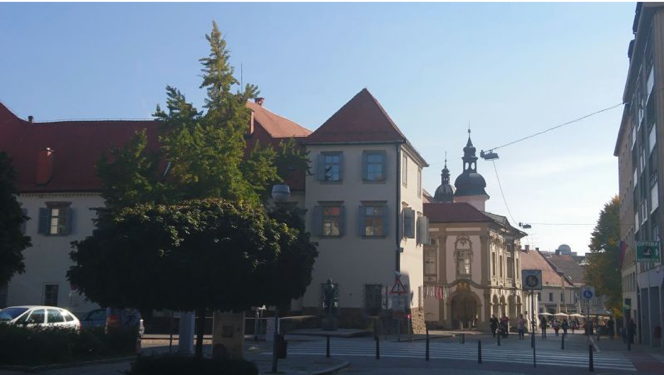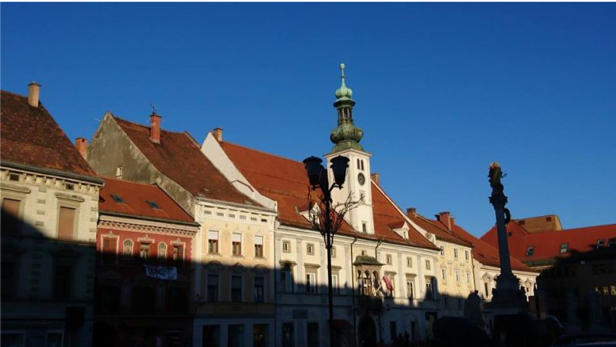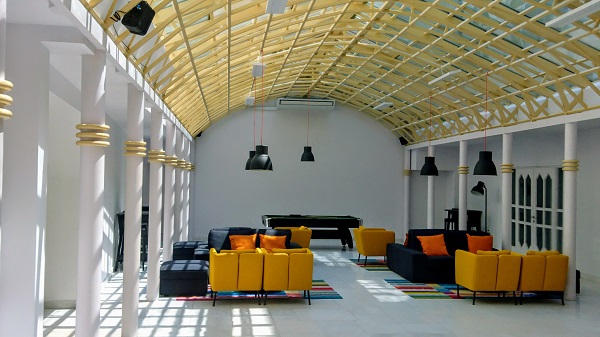Rethinking Europe: Philosophy, Culture and Politics
Humanities Summer School in Slovenia and Austria
For High School Students (16-19 Yrs)
From 20 to 28 August 2018, Alma Mater Europaea (Slovenia), in cooperation with the European Academy of Sciences and Arts (Salzburg, Austria) will be organizing an engaging summer school in humanities during which international students between 16 and 19 years of age will be able to critically explore the European philosophy, politics and cultural heritage. The summer school has been academically designed and will be led by internationally experienced lecturers and teachers.
Topics, addressed by the Summer School range from the perspectives of different disciplines – Philosophy, Aesthetics, Politics, Sociology, and Religious Studies – stem from the following central questions:
- What are the most notable achievements and main challenges of the current European integration project, and how does this relate to the global standing of the European Union today?
- What does the idea of interculturalityin European humanities comprise of and what are its philosophical and religious roots?
- Is Europe marching further towards secularization, or is religion, or political Christianity in particular, regaining influence?
- How is art related to society in Europe, and what is its function?
- What does the rise of creative industries in modern society mean for art as a traditional creative activity and for its social role?
The school will challenge students to reflect on modern, popular political discourses, economic trends and cultural phenomena in critical conversation with different traditions of European thought.

Participants
The Summer school invites international students (16-19 yrs). They can be high school students who have not yet taken university courses, with different levels of academic experience with philosophy of humanities (anywhere from beginners to students who have already taken high school philosophy or humanities courses). The language is English; hence a solid command of English is expected.
There are 40 places available which will be allocated on a first-come-first-serve basis (your place will be secured after we have received the payment). The Summer school staff will take care of the participants who will be coming without accompanying adults, from the moment of registration until the closing event of the programme, both at Alma Mater Europaea ECM in Maribor.
For further information, please follow the links below:
Overview
Programme
Faculty
Venues and Accommodation
Contact
Application
PROGRAM
Structure of the Programme and Schedule
This Summer school offers an intense and engaging programme with a combination of different methodologies (lectures, discussions, interactive workshops, plenary sessions, and excursions), accompanied with relaxed social and cultural activities.
Each student will be able to choose their main course of study among the offered courses (see below) which she/he will attend on the Study Days of the school. In addition, keynote lectures and plenary sessions on the topic of the day will be offered for all students to attend.
Provisional Programme
20 August (Afternoon): Arrival and registration (Alma Mater Europaea ECM, Maribor)
21 & 22 August: Study Days (Maribor)
23 August: One-Day Trip to Ljubljana and Bled (Slovenia)
24 & 25 August: Study Days (Maribor)
26 August: Traveling and a Study Afternoon in Vienna
27 August: Study Day and Sightseeing (Vienna)
28 August: Study Morning and Closing Event in Vienna; returning to Maribor
(The programme ends in the afternoon of 28 August, at Alma Mater Europaea ECM, Maribor).
Provisional Daily Schedule
Maribor:
9:00-9:10 Morning Assembly
9:10-9:55 Keynote Session
10:00-12:00 Main Course Session
12:00-14:00 Lunch break
14:00-16:00 Main Course Session
16:00-16:30 Break
16:30-18:00 Plenary Session
18:30-19:30 Dinner
19:30-22:00 Free Time and Social Activities
Vienna: Two and a half days in Vienna will consist of educational excursions, sightseeing, and a topical discussion related to the summer school theme.

Course Descriptions (Short)
Europe and the Idea of Intercultural Philosophy (Lenart Škof): In this course, you will examine selected examples of historical contacts between cultures and civilizations (from the Mediterranean to Asia) with special focus on intercultural value of such contacts and their potential for mutual enrichment between cultures. Different European traditions and the phenomenon of Eurocentrism in the Middle and Modern Ages will be addressed, and the rise of the idea of interculturality in the late 19th and early 20th Century examined. What does this idea comprise and what are its philosophical and religious roots? The answers will be sought analysing works of R.A. Mall, W.C. Smith, and others.
“Be Creative!” Creative Imperative and Creative Action in Contemporary Society (Polona Tratnik): The course is devoted to creativity, which is today considered an imperative for each and every European citizen. In the era of modernity, art has established itself as autonomous field of social activity that concerns creativity. How is art related to society, and what is its function? Does autonomy separate art from society or does it help art to be an independent field? What does the rise of creative industries mean for art as a traditional creative activity, its existence in the society and its social role? You will explore answers to these and related questions through readings and case studies.
“What Does God Have To Do With It?” – Religion and Politics in Europe (Gorazd Andrejč): European societies have had a love-hate relationship with religion (esp. Christianity and Judaism) for centuries. Is Europe marching towards ever greater secularization, or is religion (esp. Identitarian Christianity) regaining its political influence? What does it mean to say that public moral discourse is “secular”, anyway? And, are secular values rooted only in Enlightenment and reason, or is it rather that Christianity itself already contains the drive towards secularity? Different answers will be considered through engaging with works by C. Taylor, J. Habermas, J. Casanova, J. Stout, and others.
Critical Political Philosophy – Mapping European Ideologies (Miha Andrič): This course will offer an engaging introduction into Continental Critical Theory from German idealism and French structuralism to the Frankfurt School and post-colonial studies. A developed conceptual apparatus will be used to scrutinize historical and contemporary European ideologies. The course will enable you 1) to analyse modern, popular political discourses, economic trends and cultural phenomena, and 2) to understand the current power-relations and the related ideological narratives.
European Political Past and Present – From Unification Ideas to Integration Policies (Cirila Toplak): This course will first examine European history from the perspective of political cooperation and cultural similarities instead of conflicts and divergences. The second part of the course will focus on the achievements and challenges of the current European integration project with a special emphasis on European continentalism and the global standing of the European Union today.
For further information, please follow the links below:
Overview
Programme
Faculty
Venues and Accommodation
Contact
Application
Faculty
Course Leaders
The Summer school brings together internationally recognized lecturers and teachers from different fields, with study or work experience from some of the world’s top universities, or with experience in leading international educational and debate programmes around the world.
Dr Lenart Škof is Head of the Institute for Philosophical Studies at Science and Research Centre Koper, and Professor of Humanities at Alma Mater Europaea, Maribor. In the past, Dr Škof was a Fulbright fellow (Stanford University) and Humboldt fellow (Max Weber Institute, University of Erfurt).
Dr Polona Tratnik is Dean of Alma Mater Europaea ISH – Postgraduate School of Humanities, Ljubljana. In the past, she was a Fulbright Visiting Scholar at the University of California Santa Cruz and Guest Lecturer at several renown universities around the world. She is the president of the Slovenian Society of Aesthetics (since 2011), as well as a pioneer bio artist exhibiting worldwide.
Mr Miha Andrič is a Program Director of several international debate academy programmes (Moscow, Istanbul, Tunis, Helsinki) and a Guest Lecturer and Evaluator at debate programmes around the world. As the national coordinator for Slovenia, he is involved in International Philosophy Olympiad and Community of Philosophy & Ethics teachers in Europe. In the past he also held extra-curricular seminars at the Faculty of Arts, Ljubljana.
Dr Gorazd Andrejč is a Senior Researcher in Philosophy at the Faculty of Arts, University of Maribor, and an Affiliate Lecturer at the Woolf Institute, Cambridge, UK. He graduated from Universities of Cambridge and Exeter, taught at universities around the world, and contributed to summer schools at Universities of Milan, Exeter, and Sarajevo.
Dr Cirila Toplak is Professor of Political Science at the Faculty of Social Sciences, University of Ljubljana, where she also acts as Chair of Theoretical Political Science at the Centre for Political Theory. She studied at University of Sorbonne, Paris and the State University of New York in Buffalo, NY, USA. In 2004 and 2005, Dr Toplak served as a Counsellor on European Affairs to the President of the Republic of Slovenia.
For further information, please follow the links below:
Overview
Programme
Faculty
Venues and Accommodation
Contact
Application
Venues and Accommodation
For most of the Summer school, students will be accommodated at the Uni Hostel Maribor, Slovenia. The venue for the study activities of the summer school is Alma Mater Europaea ECM (just a one minute walk from the Uni Hostel). In Vienna, the students will be lodged at Hotel Korotan.
For further information, please follow the links below:
Overview
Programme
Faculty
Venues and Accommodation
Contact
Application
Request information
You are kindly invited to enrol into the study programme Strategic Communication Management. More information can be obtained from the programme brochure or at the programme webpage (link). Fill-in the form for more information about the study programme (non-binding) and we will send you all important documents, deadlines and other details regarding the study programme and its implementation (Info days, enrolment deadlines, etc.).
Programme begin of Strategic Communication Management is planned for the summer semester 2016.
Don’t hesitate to contact us in case of further questions, enrolment criteria and application procedures at: +386 2 250 1997
Your Alma Mater Europaea Team
Contact
Contact Person
Summer School Coordinator: Dr Gorazd Andrejč
For further information, please follow the links below:
Overview
Programme
Faculty
Venues and Accommodation
Contact
Application

